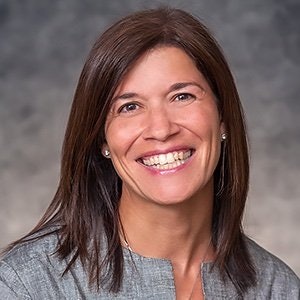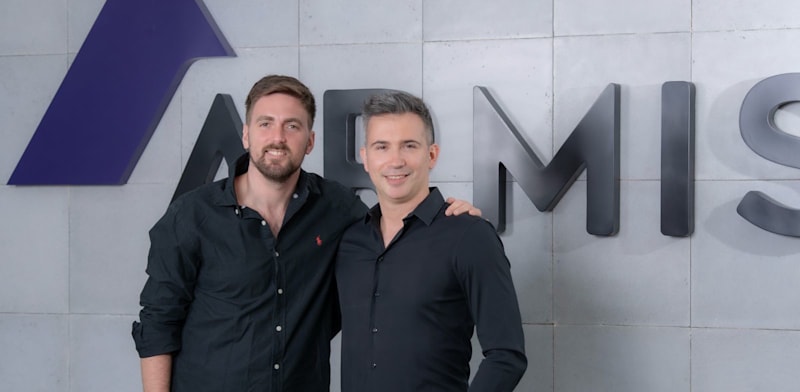Rawpixel.com/Shutterstock
As higher education professionals, we stick to the script. Whether it’s developing a syllabus, curriculum, or a marketing plan, we like to follow prescribed narratives. We’re in a business that counsels students to follow a script to graduate and find a career. Some scripts are external, but as psychologist Silvan Tomkins posited when developing script theory, humans rely on internalized scripts that shape our decisions about what we want to do, where we want to do it, and when we want to do it.
Just as we have restaurant scripts that we follow when we go out to eat — find a table, place an order, eat, and pay the bill — we have work scripts and career scripts.
Bruce Feiler, in his book “The Search,” argues that traditional career scripts are becoming less relevant. He wrote that we have “work scriptures” that are instead reactions to the script.
“It’s the personal story that each of us writes that both includes expectations that we absorb from our upbringings, and then layers on top of them a host of individual ingredients that we adopt from our role models, learn from our environments, (…) and so on,” Feiler wrote. “While our script is unchanging, our scripture is ever changing.
“Our script is what we should do; our scripture is what we want to do.”
The reason scripture is more important than script is because the post-industrial environment has made work less about a means to a paycheck and more of a source of identity. Feiler calls our current environment a “meaning-based economy,” where fulfillment matters more than titles or salaries. For those of us working in colleges and universities — settings steeped in exploration and lifelong learning — his ideas offer practical guidance for charting our own paths and mentoring others.
From Career Ladder to Career Story
Feiler urges readers to stop thinking about careers as linear ladders and start thinking of them as stories we write and rewrite. He introduces the concept of the “work story,” an ongoing narrative shaped by changes in our jobs, our families, and our lives, that has periodic “workquakes” (moments of disruption or reflection that push us to revise that narrative). Research he cites suggests that most of us will experience around 20 workquakes over a lifetime.
Rather than resist these tremors, higher education professionals can embrace them. Our campuses are natural laboratories for reinvention, full of colleagues who pivot between teaching, research, administration, and student services. Seeing each transition as a chapter rather than a derailment allows us to find coherence even when the plot twists.
Six Questions for Any Workquake
When the ground shifts — perhaps from a departmental reorganization, a stalled promotion, or simply restlessness — Feiler suggests pausing to ask:
Who is your Who? “I want to be the kind of person who…” Who is your What? “I want to do work that…” When is your When? “I’m at a moment in life when…” Where is your Where? “I want to be in a place that…” Why is your Why? “My purpose right now is…” How is your How? “The best advice I have for myself is…”
For academic professionals, these questions can illuminate whether it’s time to pursue tenure, move into administration, or even leave the academy entirely.
It’s important to distinguish between the script you inherit and the scripture that you’re writing. Higher educational professionals often internalize scripts about prestige, whether it’s tenure as the pinnacle or an administrative title as a determinant of success. But your scripture might prioritize student mentorship, community impact, or flexible time for family. Recognizing the difference liberates you to author a career that fits your values.
But how can you tell?
Practical Ways To Harness Your Story
Here are some practices from Feiler’s book to help you draw upon your scripture:
Create a Work Story Journal. Chronicle pivotal moments, such as successes, setbacks, mentors, and notice how your emotions are tied to them. Over time, themes will emerge. Map Relationships and Lessons. Like a firefighter candidate in Feiler’s book, list the relationships and life experiences that shaped you. What have they taught you about resilience or empathy? Share Your Narrative. In job interviews, performance reviews, or mentoring sessions, frame your experiences as a story of growth and purpose. “Anybody can do their job,” a fire chief told Feiler. “Not anybody can tell their story.” Reconnect with Childhood Dreams. Of the six questions listed above about workquakes, Feiler repeatedly tells readers to think about passions from earlier in their lives. They often reveal enduring motivations. This is not to say that you should become a firefighter or a ballerina because that’s what you wanted to be before you grew up, but maybe it’ll lead to a job serving a local community or performing and creating. Model the Stories You Like. By recognizing which narrative excites you most, you clarify the kind of work that feels meaningful. Feiler mentioned a chemistry professor who likes suspense stories the same way he likes research and solving difficult problems like a detective. You might prefer memoirs and, thus, jobs where you develop relationships and know people, or maybe you want to be a hero administrator who triumphs in the face of challenges and criticism or a sage-on-the-stage professor who applies life wisdom.
Final Thoughts
Feiler’s challenge is simple but profound: stop chasing someone else’s definition of success and start authoring your own. Scripts — those inherited expectations about prestige, titles, or timelines — may offer structure, but they can also trap you. Your scripture is fluid; it evolves with every “workquake,” every insight, and every relationship that shapes your sense of purpose.
Whether you’re a faculty member weighing tenure, a staff leader eyeing a new campus, or a student-facing adviser helping others navigate their futures, the real task is the same: write a career story that reflects your discovered values. When you claim that story — and share it — you not only find meaning in your own work, you model for students and colleagues how to thrive in a meaning-based economy where fulfillment is the true measure of success.


























